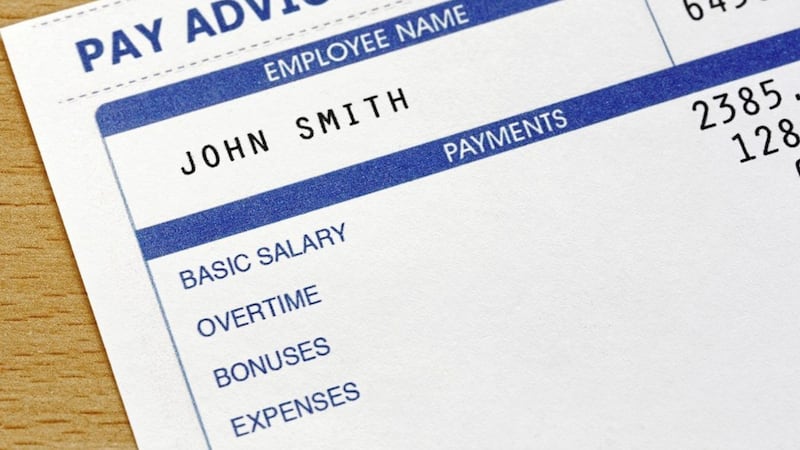In January’s New Decade, New Approach deal, all five executive parties agreed with an Alliance proposal that “powers to set minimum wage levels should be made a devolved matter”.
Nothing has been heard of this since.
Several councils around Northern Ireland have since debated motions on a universal basic income, making the silence on the minimum wage doubly odd, as Alliance has generally proposed these motions.
Raising the minimum wage would be a far more achievable and efficient way of delivering some of the objectives of a universal basic income, although it is a less fashionable subject.
This week, Stormont has announced high street spending vouchers, an experiment from a fairly rarefied theoretical realm.
Again, raising the minimum wage could achieve similar objectives on a long-term basis. Few things stimulate the retail economy like paying the low-paid more: they tend to spend it all, locally and immediately.
Also this week, chancellor Rishi Sunak was reportedly reconsidering next year’s five per cent planned rise in the national living wage - the minimum wage for the over-25s. Should that not have bumped the topic onto Stormont’s agenda?
Brexit and Covid are not distractions from this conversation. They are the urgent contexts in which radical income experiments are increasingly discussed. Northern Ireland had a Brexit and minimum wage debate at the start of this year, but only regarding migrant workers, with firms demanding a lower salary threshold than the rest of the UK. Somehow this debate did not widen out to minimum wages for everyone else and Stormont’s new option to set them.
Incidentally, a universal basic income is incompatible with almost any level of immigration, unless you want an ancient Greek society of leisured citizens and exploited helots.
There are two reasons why our politicians would refuse to talk about an apparently obvious policy whose power is theirs for the asking.
The first is devolutionary accounting. Low wages are subsidised by the tax and benefits systems, neither of which are part of Stormont’s budget. If firms here have to put wages up the amount of UK taxpayers’ cash flowing into Northern Ireland goes down - in fact, it goes into reverse, as higher pay is taxed.
The solution to this perverse disincentive is to approach it like the devolution of corporation tax: Stormont could take on financial responsibility for the taxes and benefits in question, then keep any savings from improvements to the economy.
Our politicians spent much of the past decade successfully arranging such a deal with the Treasury on corporation tax. It should not be far fetched to expect them to do the same with the minimum wage.
The second reason to spurn the policy is not knowing what to do with it.
Putting the minimum wage up is presumed to cost jobs; putting it down looks politically impossible.
If we had any public debate on this subject we might realise it is not quite that simple.
The minimum wage is set on the advice of economists, based on calculations of its impact on jobs. However, it is considered important to have one national rate rather than regional variations. So the level in Northern Ireland has always been theoretically too high, just as it has always been too low in the south east of England. Yet the 21-year existence of the minimum wage has coincided with the lowest unemployment in Northern Ireland’s history, year after year.
Of course, there must still be a point beyond which wages destroy jobs. But there is also a range within which higher wages create and sustain jobs, by making work pay and giving people disposable incomes. Are we at the optimal point in that range?
It is no great insight that a consumer economy needs consumers. Henry Ford realised a century ago that paying his workers twice the average wage would enable them to buy his cars.
Northern Ireland might not be placed to try something so audacious but a touch of Fordism could be considered.
Stormont’s economic policy is to attract investment based on low wages, in the hope of driving wages up. Is that putting the cart before the horse or even dropping the cart on the horse? Perhaps the best way to start wages rising is to give them a nudge at the outset, signalling the type of jobs, economy and society you want.
At the very least, Stormont could discuss a policy lever it asked for less than a year ago and which is looking more relevant by the day.









